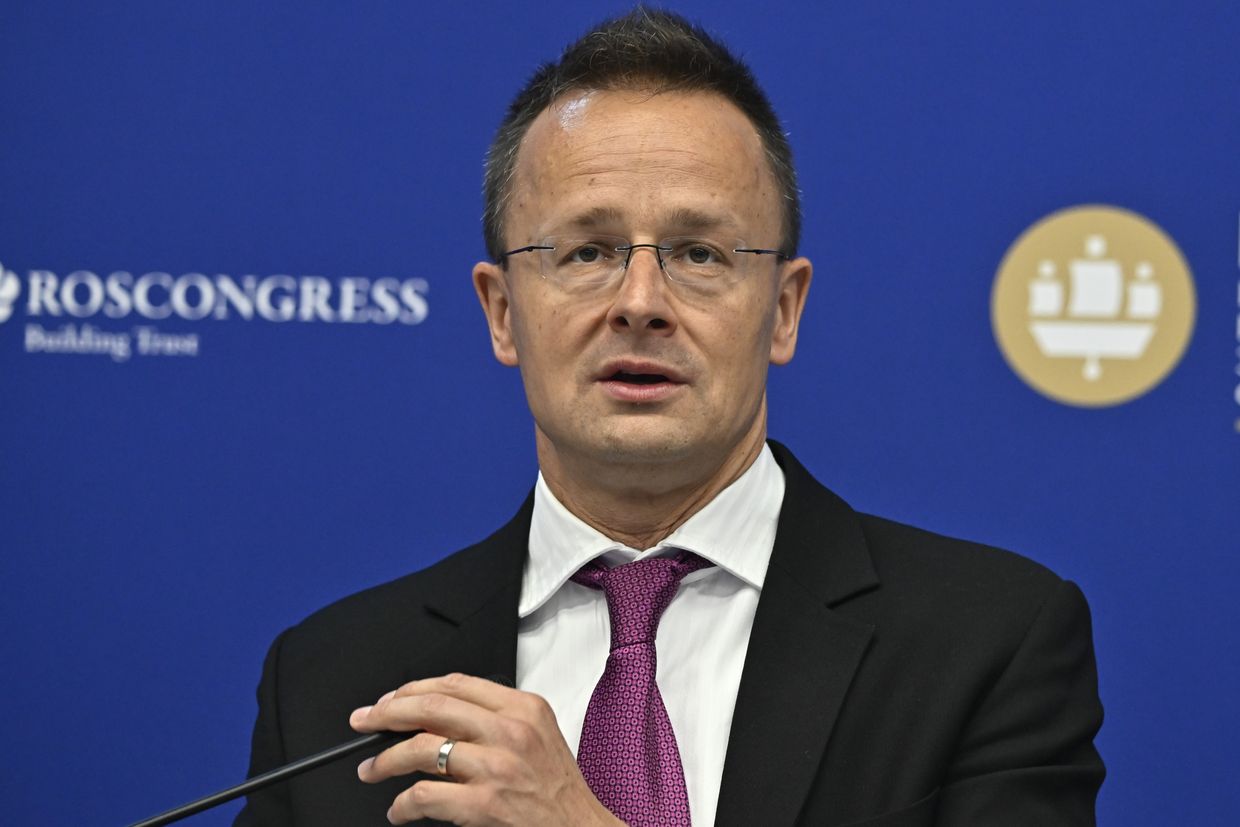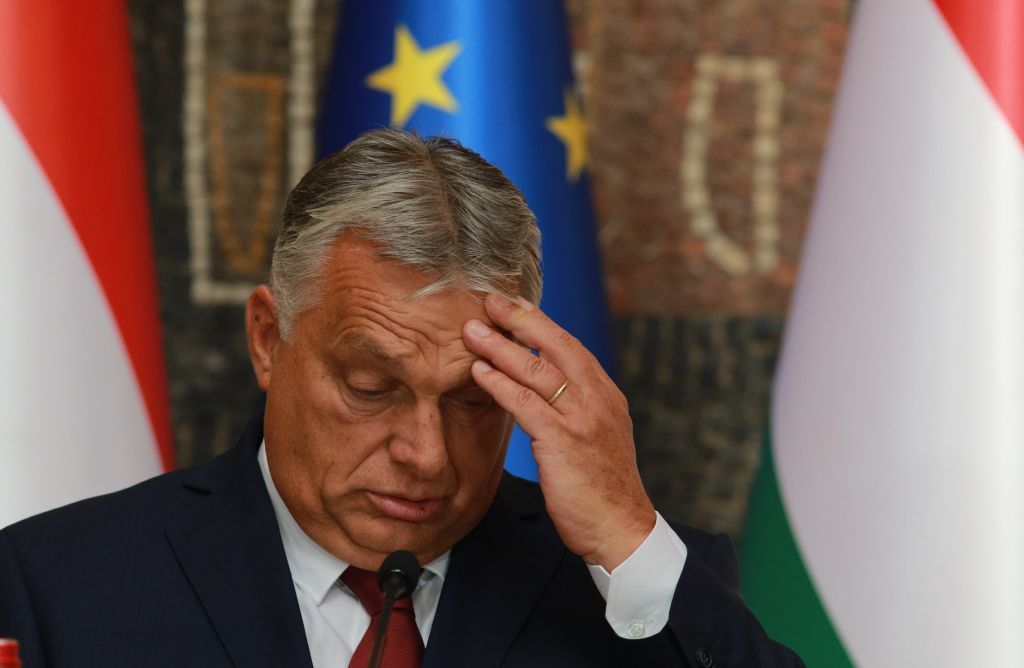Speaking at a press conference in Kyiv on May 10, President Volodymyr Zelensky rebuked the idea of a demilitarized zone in the war and emphasized the importance of first securing a ceasefire.
"We agreed that a full and unconditional ceasefire must begin on Monday, May 12, for at least 30 days. We jointly demand this from Russia, and we know we are supported in this by the United States," Zelensky said.
The announcement follows mounting fears that the two nuclear-armed countries were on the brink of engaging in another full-scale war.
Ukrainian media outlet ZN.UA reported on May 10 that their law enforcement sources confirmed an ongoing probe by the National Anti-Corruption Bureau into suspected embezzlement, money laundering and bribery.
Iran is preparing to send Russia Fath-360 short-range ballistic missile launchers, Reuters reported on May 9, citing Western security and regional officials familiar with the matter.
"Ukraine and all allies are ready for a complete unconditional ceasefire on land, in the air, and at sea for at least 30 days, starting as early as Monday," Ukraine's Foreign Minister Andrii Sybiha wrote.
U.S. President Donald Trump has acknowledged in private that Russia is difficult to negotiate with because they "want the whole thing," referring to Ukraine, the WSJ reported, citing sources familiar with the comments.
The visit marks Merz’s first trip to Ukraine, and the first time all four leaders have travelled there together.
A notice about the airspace closure was published on the U.S. Defense Department's NOTAM (Notice to Airmen) website on May 10, as cited by Ukrainian defense news outlet Militarnyi.
"As in the past, it is now for Russia to show its willingness to achieve peace," the EU's statement reads.
Kremlin spokesperson Dmitry Peskov rejected the idea of a 30-day ceasefire between Russia and Ukraine, claiming in an interview with ABC News on May 10 that it would be "an advantage" for Ukraine.
"Our involvement in the war was justifiable, and this belongs to our sovereign rights," North Korean dictator Kim Jong Un said. "I regard this as part of the sacred mission we must execute for our brothers and comrades-in-arms."
Hungary to block EU's Ukraine defense funds until Kyiv lifts ban on Lukoil transit, Budapest says

Budapest will continue blocking the disbursement of 6.5 billion euros ($7 billion) from the European Peace Facility (EPF) for Ukraine military aid until Kyiv allows the transit of Russia's Lukoil oil, Hungarian Foreign Minister Peter Szijjarto said on July 23.
Both Hungary and Slovakia said that Ukrainian sanctions effectively halted the oil transit of the Russian Lukoil company to the two countries.
The Slovak leadership also threatened unspecified repercussions against Ukraine, reminding Slovakia's key role as an electricity supplier amid Ukraine's energy deficit caused by Russian strikes.
Oleksiy Chernyshov, head of Ukraine's state-owned energy company Naftogaz, said earlier this week that while the transit of the Lukoil product through Ukraine has ceased, the overall transit volumes have remained stable. He called Bratislava's and Budapest's complaints a "political issue."
"I also made it clear that as long as Ukraine fails to resolve the issue, everyone can forget about the 6.5 billion euros in compensation for arms transfers under the European Peace Facility," Szijjarto said in an interview with the ATV news channel.
Hungary, broadly seen as the most Kremlin-proximate EU member, has repeatedly obstructed aid for Ukraine on account that it "prolongs" and "escalates" the ongoing war. These views have been often echoed in Slovakia since Ukraine-skeptic Prime Minister Robert Fico took office last fall.
The blocking of funds under the EPF predates the dispute over Lukoil supplies. Hungary has been stalling tranches under the program, meant to reimburse members who provided aid to Ukraine, for over a year.
According to Szijjarto, Hungary is working on legal and technical solutions to ensure the long-term oil supply if Ukraine does not lift the restrictions.
"I think that this is a crystal clear situation here, and the European Commission should really pressure Ukraine to allow Lukoil oil deliveries again," Szijjarto said after he and the Slovak government turned to the EU for mediating the dispute.
According to the foreign minister, Lukoil supplies represent 33% of Hungary's crude oil imports, as well as 40-45% of Slovakia's imports. The two countries were among the few EU members granted exceptions from the ban on Russian pipe oil imports.

Most Popular

After 3 years of full-scale war in Ukraine, Europe announces plan to ban all Russian gas imports

Ukraine, Europe's ceasefire proposal includes US security guarantees, no recognition of Crimea, Reuters reports

Journalist Roshchyna's body missing organs after Russian captivity, investigation says

After Russia's deadly attack on Kyiv, Vance reposts denunciation of Zelensky

Ukrainian sea drone downs Russian fighter jet in 'world-first' strike, intelligence says
Editors' Picks

How medics of Ukraine’s 3rd Assault Brigade deal with horrors of drone warfare

As Russia trains abducted children for war, Ukraine fights uphill battle to bring them home

'I just hate the Russians' — Kyiv district recovers from drone strike as ceasefire remains elusive



